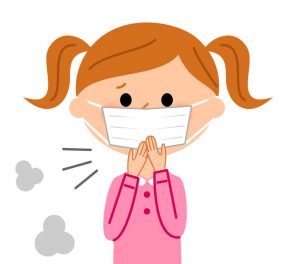Influenza (also known as the flu) is a highly contagious illness for all ages and is spread easily from person to person by coughing, sneezing, or touching contaminated surfaces.
spread easily from person to person by coughing, sneezing, or touching contaminated surfaces.
Flu Symptoms
- Fever (temperature higher than 37.8ºC) that lasts 2-5 days
- Headache and muscle aches
- Fatigue
- Cough and sore throat may also be present
Flu symptoms usually improve in 2-5 days but can persist for up to a week or more. Most people with the flu recover within one to two weeks without treatment. Pneumonia is the most common complication of the flu virus.
Prevention
Getting vaccinated against Seasonal Influenza is the most effective way to prevent and control epidemics.
The Influenza Vaccine (Flu Shot)
The indication for the flu shot is inclusive and appropriate for everyone over the age of 6 months.
People who belong to the following groups are considered high-risk (for severe disease and complications or for getting/transmitting the flu) and are highly recommended to get the seasonal flu shot:
- Healthcare workers
- Age over 60 years
- Children with any of the following conditions: asthma, heart conditions, compromised immune system, organ transplant, autoimmune disease, diabetes, chronic kidney disease
- Neuromuscular diseases
- Pregnant (any stage), postpartum or breastfeeding women
- Those with Body Mass Index> 40kg/m2
- Children taking aspirin long-term (ie. For Kawasaki’s disease)
- Those who are often in contact with infants under 6 months old or are caretakers for those who have compromised immune systems at risk to contract flu
- Those in closed quarters with other on a daily basis (ie. Schools, army etc.)
- Veterinarians or those who work with animals
- Those working in the farm industry and (ie. livestock and especially poultry)
Other tips to limit the spread of Influenza:
- Wash your hands with soap and water or use hand-sanitizer often
- When sneezing/coughing, do so into the sleeve of your clothing (at the inner elbow)
- Avoid touching your eyes, nose, and mouth
- Avoid close contact with sick people
- If sick with a flu-like illness, stay home for at least 24 hours after your fever is gone
- While sick, limit contact with others
Practical Information:
Always consult your physician for the safest treatment options.
- Antibiotics DO NOT treat influenza
- Cough medicines ARE NOT usually helpful; cough usually resolves without treatment
- Antiviral treatment — WHEN INDICATED, antiviral medicines can be prescribed by your physician
More information on Influenza can be found at the KEELPNO, WHO and EUCDC websites.
For the Greek version of this fact sheet, click here.
